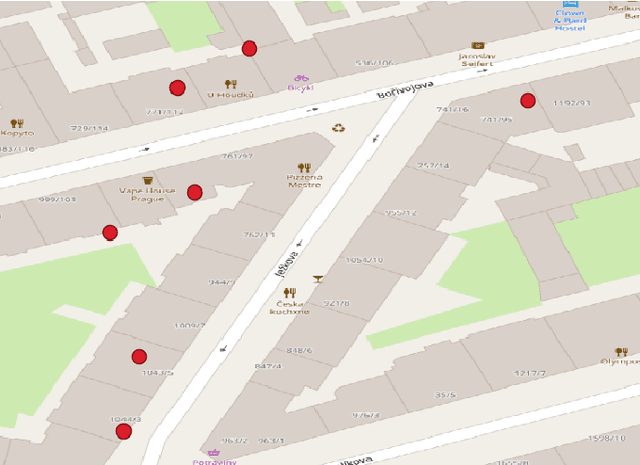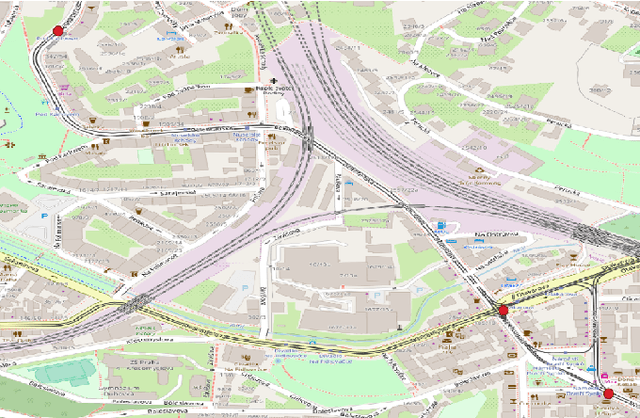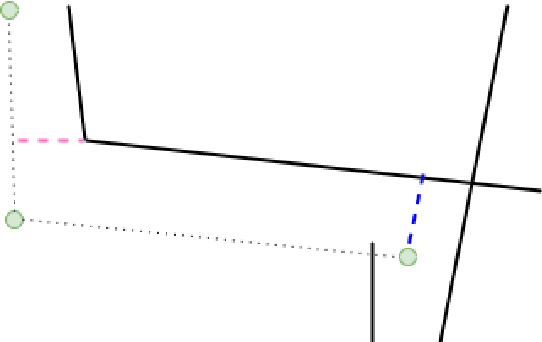Jan Nykl
Map Matching Algorithm for Large-scale Datasets
Sep 12, 2019



Abstract:GPS receivers embedded in cell phones and connected vehicles generate a series of location measurements that can be used for various analytical purposes. A common pre-processing step of this data is the so-called map matching. The goal of map matching is to infer the trajectory that the device followed in a road network from a potentially sparse series of noisy location measurements. Although accurate and robust map matching algorithms based on probabilistic models exist, they are computationally heavy and thus impractical for processing of large datasets. In this paper, we present a scalable map-matching algorithm based on Dijkstra shortest path method, that is both accurate and applicable to large datasets. Our experiments on a publicly-available dataset showed that the proposed method achieves accuracy that is comparable to that of the existing map matching methods using only a fraction of computational resources. In result, our algorithm can be used to efficiently process large datasets of noisy and potentially sparse location data that would be unexploitable using existing techniques due to their high computational requirements.
 Add to Chrome
Add to Chrome Add to Firefox
Add to Firefox Add to Edge
Add to Edge